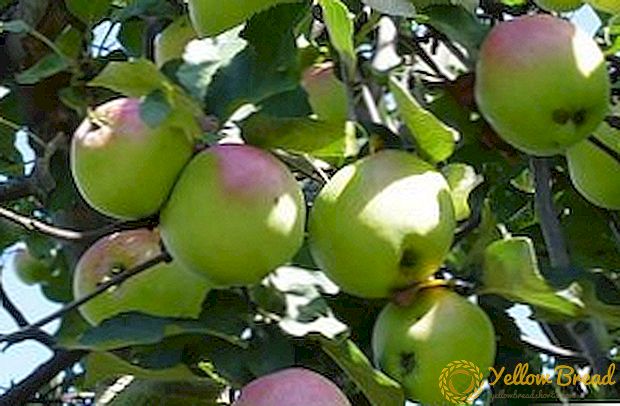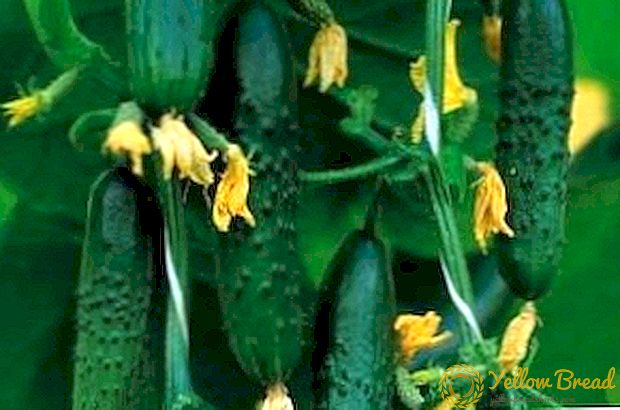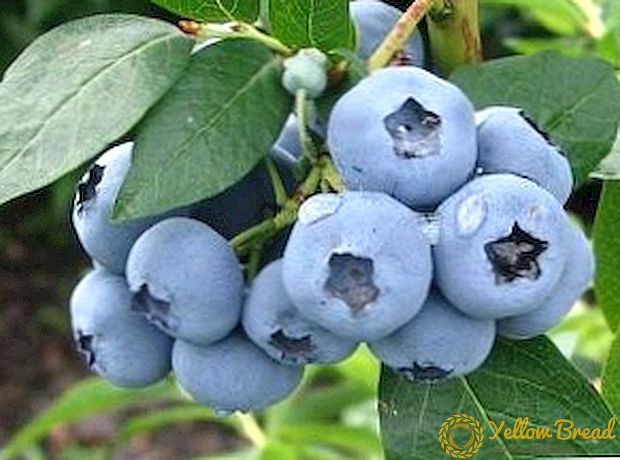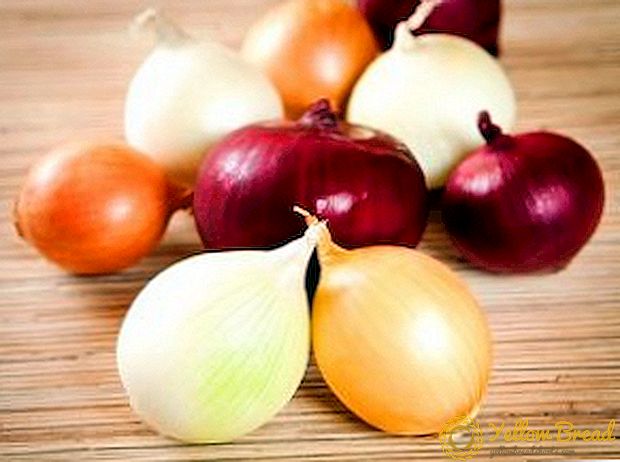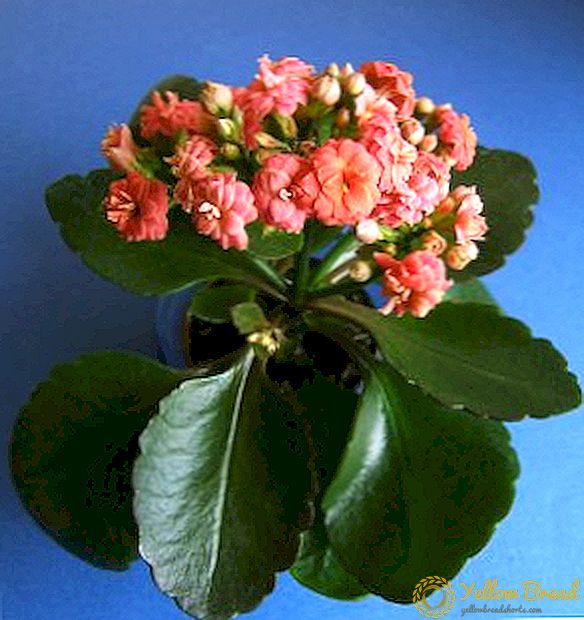 Kalanchoe is a perennial plant of the colossae family, brought to Europe from the rain forests of Asia, America and Australia. Recently, it began to breed as a houseplant, which impresses with its diversity.
Kalanchoe is a perennial plant of the colossae family, brought to Europe from the rain forests of Asia, America and Australia. Recently, it began to breed as a houseplant, which impresses with its diversity.
Types of Kalanchoe are represented by more than 200 names, not counting varieties and hybrids.
- Kalanchoe Behar
- Kalanchoe Blossfeld
- Kalanchoe felt
- Kalanchoe Degremona
- Kalanchoe Kalandiva
- Kalanchoe large-flowered
- Kalanchoe Mangina
- Kalanchoe marble
- Kalanchoe pinnate
- Kalanchoe dissected
- Kalanchoe Sensepala
- Kalanchoe Hilderbrandt
Kalanchoe Behar
This plant is considered the keeper of the hearth. It absorbs negative energy and smoothes over conflicts in the family. It is noticed that in the house a flower cleans the air from harmful impurities. In addition, almost all types of Kalanchoe are medicinal.
In the natural environment Behara Kalanchoe common in Southeast Asia and Madagascar. Its stem, thin and lightly fuzzy, grows up to 40 cm. The leaves are triangular in shape, with pronounced teeth. They are also pubescent. The color of the leaves is olive.
The plant blooms in June-July with small flowers of pale yellow color.Kalanchoe behar must often be pruned, its leaves eventually remain only at the top. Her pruned and transplanted.
Kalanchoe Blossfeld
Homeland Calaghnea Blossfelda, or white Kalanchoe, as it is also called, is Madagascar. There in natural conditions the bush reaches one and a half meters in height. The leaves in the shape of an egg have a dark green color with shaded red edges. In nature, it blooms with white buds from February to May.
Breeders have bred many varieties of this plant with a varied color of flowers: yellow, orange, pink and white. In room conditions, it grows up to 30 cm, the leaves are the same in shape as the wild relative, but light green. Fans of flowerpots prefer Kalanchoe with red flowers.
Kalanchoe felt
This view has another name - cat ears. The name of the plant received for the shape of the leaves: oblong, pubescent with a white pile, with notches at the edges, brown.
At home, Kalanchoe grows up to 30 cm.It blooms rarely, but if it blooms, then an umbrella inflorescence of violet-red flowers.
Kalanchoe Degremona
In the African tropics Kalanchoe Degremona grows up to half a meter, feels great on stony and dry, windy areas.
The leaves are large in the shape of an ellipse, slightly twisted to the center. The color of the leaves is not the same: the outer side is gray-green, and the inner side is in purple spots. Inflorescences in the form of panicle, bloom in winter.
This species is convenient for breeding at home: kids at the edges of the leaves quickly take root and develop.

Kalanchoe Kalandiva
Today, the most favorite type of flower growers - Kalanchoe Kalandiva. This compact plant up to 30 cm tall has juicy leaves and blooms incredibly beautiful.
Terry flowers of different shades wrap Kalanchoe ball bright colors. The flowering period lasts about six months. Some flowers bloom, others bloom. Kalanchoe Kalandiva unpretentious in the care.

Kalanchoe large-flowered
 Homeland these shrubs - India. The plant reaches up to 60 cm in height.Leaves - in lobes with teeth, light green, casting in the sun, changing color to red.
Homeland these shrubs - India. The plant reaches up to 60 cm in height.Leaves - in lobes with teeth, light green, casting in the sun, changing color to red.
Large-flowered Kalanchoe speaks for itself: in May, the plant blooms profusely with yellow flowers with a tube-shaped corolla, their petals are large, elongated. It can be kept in cool conditions and enjoy a delicate pleasant aroma.
Kalanchoe Mangina
Kalanchoe Mangina or Manzinias many say - this is a hybrid variety. It is similar to the form of Blossfeld leaves, but differs in large flowers-bells of pink color.
The plant blooms in spring and blooms throughout the year. Florists, collecting suspension compositions, prefer this particular variety.

Kalanchoe marble
In the wild, it grows in the mountains of Ethiopia. These shrubs grow to 50 cm, the leaves are long to 12 cm, their shape resembles an egg, narrowed to the base. On the edge of the leaves there are notches and teeth. The leaves have an interesting color: young - green, later on both sides gray with a spot of brown or lilac.
Kalanchoe blooms in January-April. Flowers are white with a long corolla up to 8 cm, petals, as well as leaves, are egg-shaped.This type of Kalanchoe feels good in a cool room. 
Kalanchoe pinnate
Kalanchoe pinnate or Briofillum (in Greek - sprouting leaf) grows up to one and a half meters in wildlife. His birthplace is Madagascar. It has a strong fleshy stem, the leaves are thick, with prongs, located opposite each other.
This species blooms in the second year at the end of winter or early spring, but does not bloom annually. The inflorescence is large paniculate, the flowers are colored light green with the addition of a pink tint.
The upper and lower leaves of this species differ in shape: the upper ones have the shape of an egg, the lower ones are of an oval shape, some types of leaves of the Kalanchoe pinnate are elliptical. When grown at home, the flowers become brick red.

Kalanchoe dissected
The second name is "Deer horns". It has dissected leaves of light green color up to 10 cm in length. Straight stems grow up to 50 cm.
Kalanchoe "Deer Horns" rarely blooms, its inflorescences are yellow. The plant is valued for unusual leaves, in addition, it is not capricious in the care, the main condition for growing - good lighting. This species has no healing properties. 
Kalanchoe Sensepala
 Plant in the form of rosettes. Have Kalanchoe Sensepala large hard leaves. Along the edges of the leaves have teeth, they have a matte surface, the length of the leaves up to 20 cm.
Plant in the form of rosettes. Have Kalanchoe Sensepala large hard leaves. Along the edges of the leaves have teeth, they have a matte surface, the length of the leaves up to 20 cm.
This species is distinguished by extraordinary survivability. With brood buds, the plant grows to 70 cm in a few months. If the leaves are cut, the flower will recover in a few months.
Kalanchoe Hilderbrandt
Kalanchoe Hilderbranta grows on a straight stalk up to 40 cm in height. It has silver leaves with a thin brown border around the edge.
All leaves are rough to the touch and covered with a thin pile. The shape of the leaves is rounded with a spout extended to the edge. Unfortunately, this representative of the Kalanchoe genus is little known to gardeners.

The description of Kalanchoe does not, of course, give a complete picture of the beauty and exoticism of this plant. But many will want to get such a handsome man on their windowsill, especially since its useful properties are widely known.


